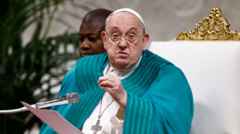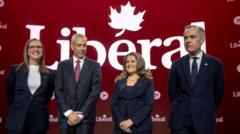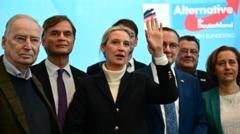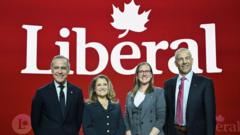Justin Trudeau's departure from the prime ministerial role comes amid increasing internal and external pressures, signaling the end of an era for Canada.
The End of an Era: Justin Trudeau Resigns as Canadian Prime Minister
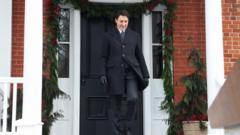
The End of an Era: Justin Trudeau Resigns as Canadian Prime Minister
After nearly a decade of leadership, Trudeau's resignation marks a significant shift in Canadian politics.
For months, Canadian Prime Minister Justin Trudeau faced persistent questions about his leadership and potential resignation. Despite his earlier assurances of remaining at the helm of the Liberal Party, growing dissent within his ranks proved too much to bear. In a candid announcement made at Rideau Cottage, Trudeau stated, “This country deserves a real choice in the next election," acknowledging the need for a reset within Canadian politics as he resigned amid mounting pressures.
Trudeau first ascended to power nearly a decade ago, riding a wave of hope and progressive ideals that saw the Liberal Party rebound from third place to a parliamentary majority. However, the same charisma that once captivated voters has dwindled, as seen in recent political developments. Now, at 53, Trudeau stands as the last survivor from a group of global leaders who saw their political fortunes shift dramatically, including figures like Barack Obama and Angela Merkel.
Political analyst Paul Wells characterized Trudeau's time in office as consequential, particularly citing his focus on indigenous issues and climate policy. However, he also noted that Trudeau became out of touch with public sentiment, struggling to adapt as voter priorities evolved. Throughout his tenure, Trudeau boasted significant accomplishments, including his administration's handling of the COVID-19 pandemic, renegotiation of trade agreements with the Trump government, and the introduction of a child benefit aimed at reducing poverty.
Nevertheless, his administration was marred by scandals, such as the SNC-Lavalin affair and accusations of ethical missteps, which eroded public trust. Following a downturn in the party’s fortunes during recent elections, and grappling with pressing issues like inflation, Trudeau's government faced increased scrutiny and backlash for not delivering on key promises, particularly concerning immigration policies that struck citizens as mismanaged.
As the days passed, it became evident that Trudeau's political future was tenuous, leading to a series of electoral defeats and party discord. "It's time for a reset," Trudeau remarked, emphasizing the need to lower the temperature in the political arena. Recent polls indicated a stark decline in public support for the Liberals, with Conservative leader Pierre Poilievre now positioned as the primary electoral threat. All of these factors combined, including the shocking resignation of his deputy and Finance Minister Chrystia Freeland, culminated in Trudeau’s announcement - a reflection of his waning power and a signal that the Liberal Party must re-evaluate its leadership and direction moving forward.
With no predetermined date for the selection of a new leader, the future political landscape of Canada remains uncertain, as the nation stands on the brink of a new chapter.








